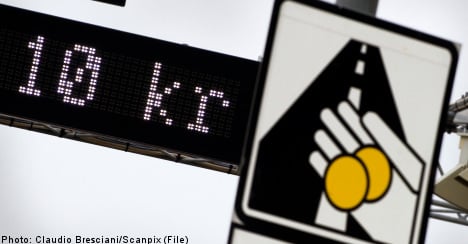The previous rules stipulated that all eco-cars registered before January 1st 2009 were exempt from paying the Stockholm congestion tax.
When the road toll system was introduced in Stockholm on a permanent basis after the 2006 general election, all eco-cars were exempt in a bid to stimulate sales.
The exemption was phased out beginning of 2009 and all new vehicles began paying the tax immediately.
From Wednesday all private vehicles entering Stockholm’s inner-city areas will have to pay the fee.
According to the Swedish Transport Agency (Transportstyrelsen) the change affects some 44,000 vehicles.
Following a decision by the Swedish parliament in November 2011, the main government initiative to stimulate more eco-friendly vehicles has shifted to a new system of subsidies for electric cars.
The Local reported last week however that the subsidies have not been particular popular with Swedish consumers with only 96 premiums claimed since the system was introduced on January 1st.
Some 200 million kronor ($29.4 million) was earmarked by the government for project and it was hoped that 5,000 cars fitting the strict low-emission car definition would be paid out by 2014.
TT/The Local/pvs



 Please whitelist us to continue reading.
Please whitelist us to continue reading.
Member comments